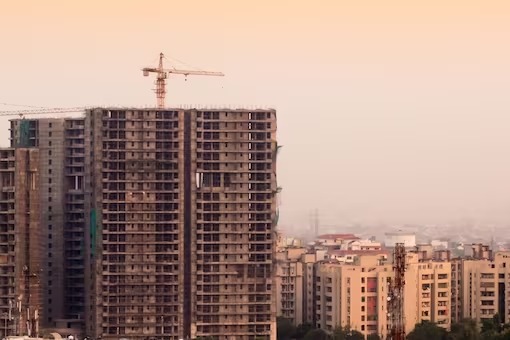Domestic Investors’ Institutional Investments in the Real Estate Sector Soar 120% to $1.5 Billion in 2023: Report
According to a Vestian analysis, institutional investments from domestic investors in the real estate industry more than quadrupled to $1.5 billion in 2023. It also said that the amount of money received from domestic investors was $1,511 million ($1.5 billion) in the previous year, a stunning 120% increase from $687 million in the 2022 fiscal year.

Amidst global difficulties, the proportion of local investors rose to 35% in 2023 from 14% in 2022, according to the research.
On the other hand, because of the macroeconomic downturn, the proportion of foreign investors decreased compared to the prior year. Although they still had a 65% share of investments in 2023, international investors’ proportion had decreased from 79% in the previous year. According to Vestian’s research, over 72% of foreign investments were focused on commercial properties, with the industrial and warehousing sector coming in second with a mere 15% share.
According to the report, domestic investors’ favorite investment choice was commercial assets, which include office, retail, co-working, and hotel projects. These projects accounted for 42% of all investments, with residential projects accounting for 39%.
“Investments remained robust throughout the year, despite uncertainty in demand across the real estate sector,” said Shrinivas Rao, FRICS, CEO of Vestian. The real estate industry remained healthy due to the optimism of local investors who maintained their faith in India’s economic narrative.
AIFs, REITs, and InvITs are three new investment mechanisms that have made it easier to access capital and have significantly increased bank outstanding. These factors have led to an increase in building activity in all real estate subsectors. Bank loans to commercial real estate rose by 38% in November 2023 compared to the same month the previous year, according to RBI statistics. However, the survey also showed that over the same time, bank outstanding for housing—including housing in the priority sector—rose by 37%.
But institutional real estate investments fell by 12% a year and totaled USD 4.3 billion in 2023. Despite a five-year low in investments, which highlights the cautious approach taken by foreign investors in the face of global macroeconomic uncertainty, a rebound is anticipated in 2024 thanks to the strong performance of the Indian economy and a strong pipeline of planned infrastructure developments, the report stated.
The report also stated that favorable government policies like the National Logistics Policy and Made in India initiatives, together with the stabilizing global economy, strong economic growth in India, a sizable domestic consumer base, and a growing emphasis on work-from-office policies, would likely draw both domestic and foreign investors to actively participate in India’s growth story.
Shrini went on, “With the introduction of new asset classes, the Indian real estate market is growing quickly. As the market expands, so does the need for funding. Investors may see significant returns on their investments as a result of this increased demand for cash. Investors may inject funds into the industry in expectation of large returns, which might spur more development and expansion and increase the need for large capital expenditures.







